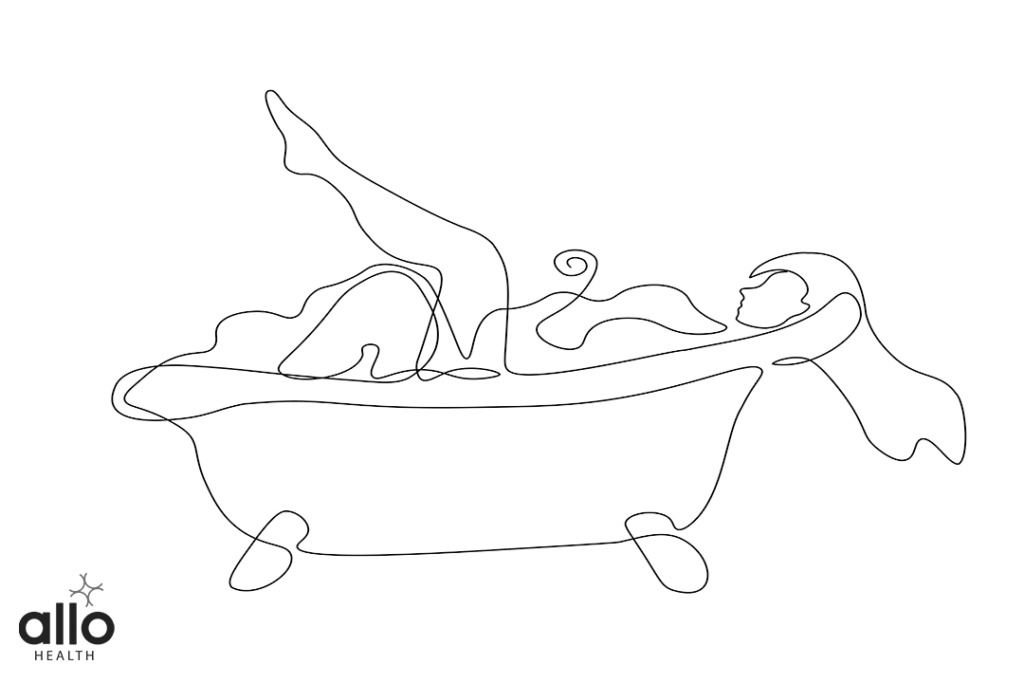Do Intimate Washes Do More Harm Than Good?

Allo Health is dedicated to personalized well-being, offering support and trusted information tailored to individual health goals. The platform emphasizes human-generated content, led by a distinguished medical team of experts, including physicians and sexual health specialists. Their commitment to credibility involves rigorous fact-checking, authoritative research, and continuous updates to ensure accurate, up-to-date information. Allo Health's unique approach goes beyond conventional platforms, providing expert-led insights and a continuous commitment to excellence, with user feedback playing a crucial role in shaping the platform's authoritative voice.

A Psychotherapist with Clinical specialization, working for over seven years now. Areas of specialization range from Anxiety-related disorders, Mood-related disorders, Personality disorders, Sexual dysfunctions & other mental health issues.
Why This Was Upated?
Our experts continually monitor the health and wellness space, and we update our articles when new information became available.
Updated on 17 April, 2024
- Article was updated as part of our commitment to diversity, equity, and inclusion.

"The following blog article provides general information and insights on various topics. However, it is important to note that the information presented is not intended as professional advice in any specific field or area. The content of this blog is for general educational and informational purposes only.
Book consultation
The content should not be interpreted as endorsement, recommendation, or guarantee of any product, service, or information mentioned. Readers are solely responsible for the decisions and actions they take based on the information provided in this blog. It is essential to exercise individual judgment, critical thinking, and personal responsibility when applying or implementing any information or suggestions discussed in the blog."
Before we find out whether intimate washes are good or bad for vulvo-vaginal health, let me tell you what intimate washes really are.
An intimate or feminine wash is a solution formulated for women to wash and clean their private or genital areas. Additionally, these washes are also designed to maintain the normal PH of the vagina which is required to prevent bacterial infection. Medical experts do not recommend the use of harsh soaps, shower gel or cleansers to wash the intimate areas as it disrupts the natural flora of the vagina, while also disturbing the bacterial balance, leading to bacterial, fungal or yeast infections.
Who Should Use An Intimate Wash?
For women in menopause, it is advised to include feminine hygiene washes in their daily life because they experience hormonal imbalance which makes their intimate areas extra sensitive and dry. This will help them keep the area nourished and healthy.
Essentially these feminine hygiene products sound pretty good to maintain a healthy vagina, doesn’t it? But why does the title say ‘If it does more harm than good?’
Should Feminine Washes Be Used Regularly To Maintain Vaginal Hygiene?
The vagina is a self-cleaning organ and requires no regular treatment for its hygiene. The vagina produces a fluid, which in addition to killing numerous harmful bacteria, also maintains vaginal Ph.
Regular washing of the vagina using a feminine wash can cause an imbalance of vaginal pH and increases the risk of infection and vaginal odour. Even washing the vagina with regular soaps or gel can dry the vaginal mucosa, which paves the way for bacterial or fungal infections and worsen the previous vaginal infection.
Daily washing of the vulva and external genital area with lukewarm water is sufficient for good personal hygiene.
What If There Is An Excessive Use Of Intimate Washes?
It is still a questionable topic. Many experts quote that intimate washes are safe, while many others suggest that washing genitals with intimate wash increase the risk of bacterial or fungal vaginal infections.
Considering vaginal and vulvar health, pH and bacterial balance of these body parts play a major role in pregnancy and periods. Recently, intimate hygiene products such as wipes, washes, lubricants, and douches are gaining popularity, and women have started using them without knowing about them.
A woman’s reproductive organs undergo different stages:- puberty, menstruation period and menopausal phase, which disturb vaginal pH and healthy bacteria. Therefore, doctors advise not to use these commercial intimate wash products regularly. Although a medically-prescribed vaginal wash can help balance the pH of and prevent vaginal infections, these also encourage the growth of healthy bacteria.
What Are The Side Effects Of Using ‘Too Much’ Intimate Wash?
The following are the symptoms or rather say after-effects of using too many commercial intimate washes.
Disturbing natural balance
You will be disrupting the natural flora of the vagina by using a feminine wash on a daily basis. As this would be stripping away the healthy bacteria it contains (lactobacilli) which help to fight against infections.
Risk To Infections
When a woman washes the internal canal or the inside of her vagina, they run into the risk of disrupting their natural pH, which can result in skin irritation, or conditions such as bacterial vaginosis and thrush.
- Studies show that using cleaning methods that strip the vagina of its natural microbiota actually increases the risk of these infections by anywhere from 8-20%.
- A 2018 survey report found that participants who reported using feminine washes/gels had almost 3.5 times higher odds of reporting BV and nearly 2.5 times higher odds of reporting a UTI.
Ultimately, Are Intimate Washes Safe For Use?
It is important to note that the safety of intimate washes can vary depending on the specific product and ingredients used. It is always best to choose products that are specifically formulated for the intimate area and to avoid using harsh chemicals or fragrances. It is also a good idea to patch-test the product on a small area before using it regularly and to consult a healthcare professional if you experience any irritation or discomfort. By following these guidelines and being mindful of the products you use, you can help ensure the safety and health of your intimate area.
Sexual health is as important as physical and mental health. In most cases, one consultation can go a long way. Personalised, discreet and judgement-free treatment at your fingertips – book an online consultation with one of Allo’s leading experts.






































